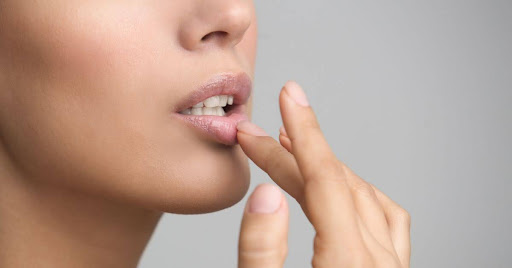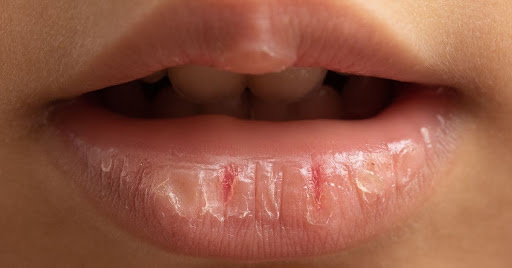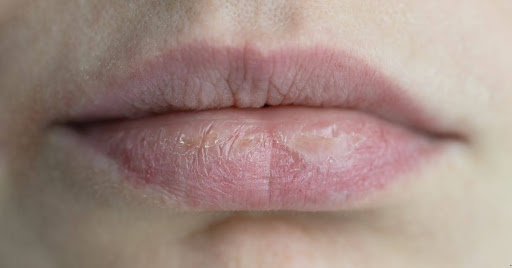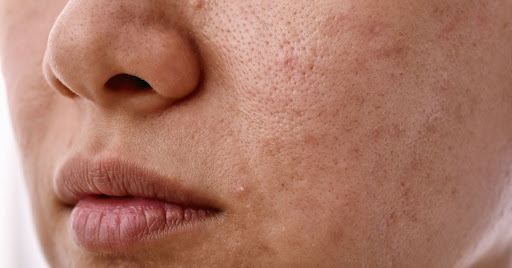Chapped Lips: Causes, Remedies, and Prevention Tips for Winter
4 min read
By DocGenie , Published on - 03 December 2024
Chapped lips are a common issue, especially during colder months. Dry, cracked, or peeling lips can be uncomfortable and unsightly, interfering with everyday activities like eating or speaking. While chapped lips often result from environmental conditions, they can also indicate underlying health issues or lifestyle habits. Understanding what causes chapped lips and how to prevent and treat them effectively is essential for maintaining healthy, soft lips all year round.
In this blog, we’ll explore the primary causes of chapped lips, suggest effective home remedies, and share winter-specific prevention tips to keep your lips nourished and protected.
What Causes Chapped Lips?
 Lips don’t have oil glands like other parts of your skin. That means they can’t produce moisture on their own and are more vulnerable to environmental factors. Some of the most common causes of chapped lips include:
Lips don’t have oil glands like other parts of your skin. That means they can’t produce moisture on their own and are more vulnerable to environmental factors. Some of the most common causes of chapped lips include:- Cold, Dry Weather Winter air is dry and lacks humidity, leading to moisture loss in the lips. Exposure to wind and chilly temperatures can worsen dryness, causing lips to crack and peel.
- Frequent Lip Licking While licking your lips might feel like it adds moisture, saliva actually evaporates quickly, taking away natural oils and making dryness worse.
- Dehydration Lack of adequate fluid intake leads to overall dryness in the body, including the lips.
- Sun Exposure UV rays can damage the sensitive skin of your lips, especially if you're outdoors frequently and not using protection.
- Allergic Reactions Lip balms, toothpaste, or skincare products containing fragrances, dyes, or certain ingredients may cause irritation or allergic reactions leading to dryness.
- Vitamin Deficiency Low levels of vitamins like B-complex, iron, or zinc can contribute to dry, cracked lips.
- Medical Conditions Certain conditions like eczema, psoriasis, thyroid imbalance, and cheilitis (inflammation of the lips) can cause persistent lip dryness.
Common Symptoms of Chapped Lips

- Dryness and flakiness
- Redness and inflammation
- Peeling skin
- Cracks or splits in the skin
- Burning or stinging sensation
- Bleeding (in severe cases)
If symptoms persist despite home care, it's important to consult a healthcare provider to rule out underlying conditions.
Effective Home Remedies for Chapped Lips
Home treatments are often effective at soothing and healing chapped lips. Here are some of the best natural and accessible remedies:- Coconut Oil It provides moisture and has anti-inflammatory properties. Apply a small amount to your lips several times a day.
- Aloe Vera Gel Rich in antioxidants and healing properties, aloe vera can soothe cracked skin. Use fresh aloe gel from the leaf or opt for a store-bought organic version.
- Honey and Petroleum Jelly Honey is a natural humectant and has antibacterial properties. Applying a mix of honey followed by petroleum jelly helps lock in moisture.
- Cucumber Slices Cucumber is hydrating and soothing. Rub a slice gently over your lips for a cooling and moisturizing effect.
- Shea Butter or Cocoa Butter These natural fats are rich in vitamins and provide a protective barrier on the lips. Use as a lip balm, especially before bed.
- Exfoliation Gently exfoliate once or twice a week using a mix of sugar and honey to remove dead skin cells. Always follow up with a hydrating balm.
Winter-Specific Tips for Preventing Chapped Lips
During winter, preventive care becomes even more important. Try incorporating the following habits into your daily routine:- Use a Humidifier Running a humidifier indoors helps maintain moisture in the air and keeps your skin and lips hydrated.
- Choose the Right Lip Balm Go for a balm with hydrating ingredients like beeswax, shea butter, lanolin, or petroleum jelly. Avoid flavored or heavily fragranced balms, as they can irritate sensitive skin.
- Apply Lip Balm Before Going Outdoors Form a protective barrier against harsh wind and cold by applying balm before stepping outside.
- Stay Hydrated Drink plenty of water throughout the day to keep your body and lips hydrated from within.
- Avoid Matte Lipsticks Many matte formulas can dry out the lips. If needed, apply a hydrating lip balm as a base before wearing lipstick.
- Don’t Peel Flaky Skin Peeling off skin from chapped lips can lead to bleeding and delay healing. Use a damp cloth to gently remove dead skin if needed.
- Protect Lips from the Sun Even in winter, UV rays can harm your lips. Use a lip balm with SPF 15 or higher.
When to See a Doctor
While chapped lips are usually not serious, persistent or severe symptoms may require medical attention. You should see a dermatologist if:- Your lips are constantly cracked or bleeding
- You notice sores, discoloration, or swelling
- Over-the-counter products do not offer relief
- You suspect an allergy or underlying condition like angular cheilitis or vitamin deficiency



